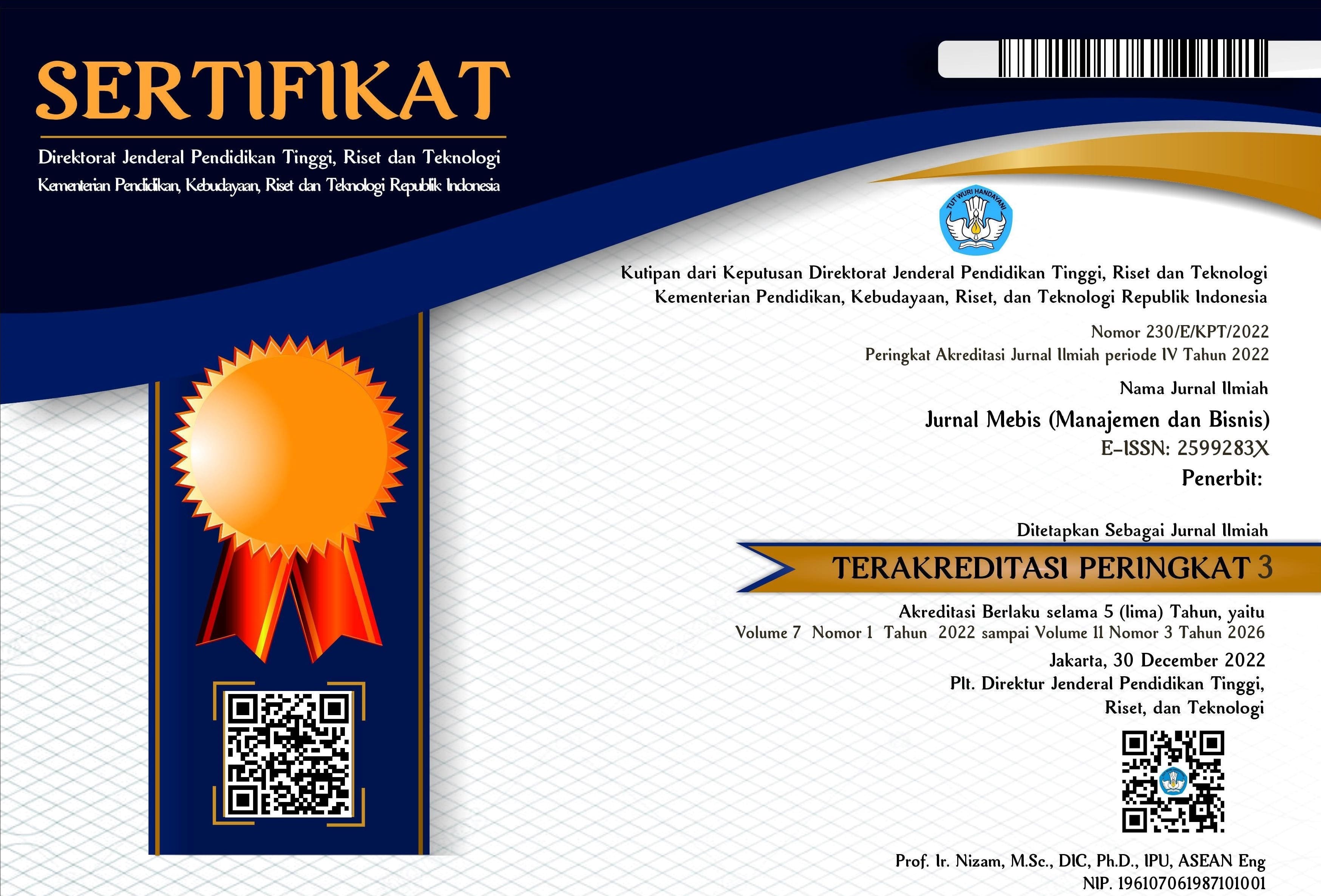THE ROLE OF THE INDEPENDENT LEARNING PROGRAM ON CAMPUS IN SHAPING THE ENTREPRENEURIAL ECOSYSTEM IN UNIVERSITIES
DOI:
https://doi.org/10.33005/mebis.v8i2.487Keywords:
Entrepreneurship Ecosystem, Entrepreneurship, Entrepreneurship MBKMAbstract
In 2020, the Indonesian minister of education, Nadiem Makarim, launched the MBKM (Merdeka Learn Campus Merdeka) program to prepare higher education graduates who are demanding to face change. Through the MBKM Program, students have the opportunity for one semester or the equivalent of twenty credits to study outside the study program at the same University and a maximum of two semesters or the equivalent of forty credits of studying in the same study program at different universities, looking in various study programs at multiple universities, and learning outside the university. To give birth to prospective entrepreneurs, universities must create a conducive entrepreneurial ecosystem for students (Mack & Mayer, 2016). The role of each component in the ecosystem, such as faculty, according to Hayter (2016), is needed in adding to the social network of prospective entrepreneurs. Autio et al. (2014) revealed that policymakers are a more dominant factor in creating an entrepreneurial ecosystem. Mueller and Toutain (2015) explain that schools are the right environment to foster cultural creativity, self-confidence, and development freedom. Various internal and external elements must be involved in forming an entrepreneurial ecosystem in higher education. This research is an early stage of research to identify multiple inputs owned by universities in shaping their entrepreneurial ecosystem through the MBKM Entrepreneurship program. The method used in this study is a qualitative method using a participatory action research (PAR) approach. The research results are expected to help universities map the factors that can support the formation of an entrepreneurial ecosystem through the MBKM program carried out by universities.













